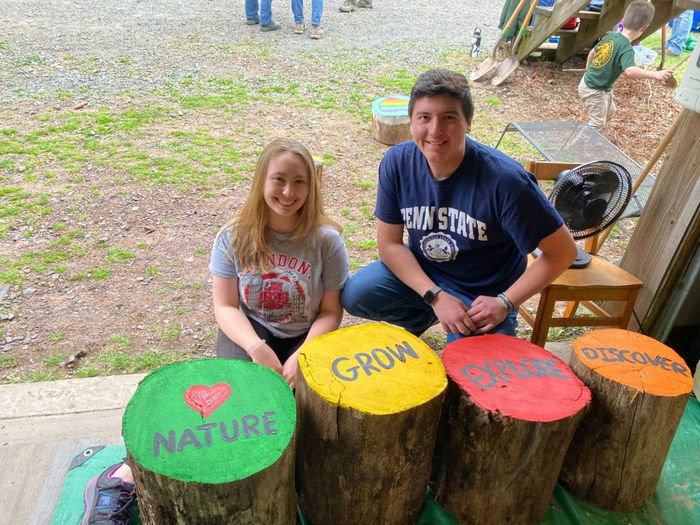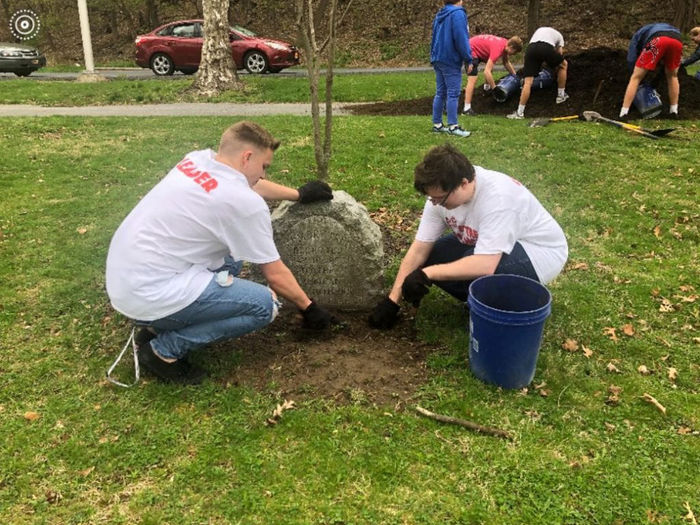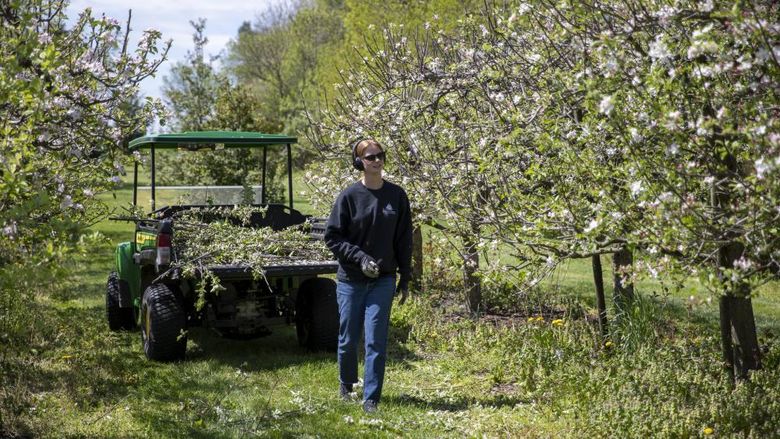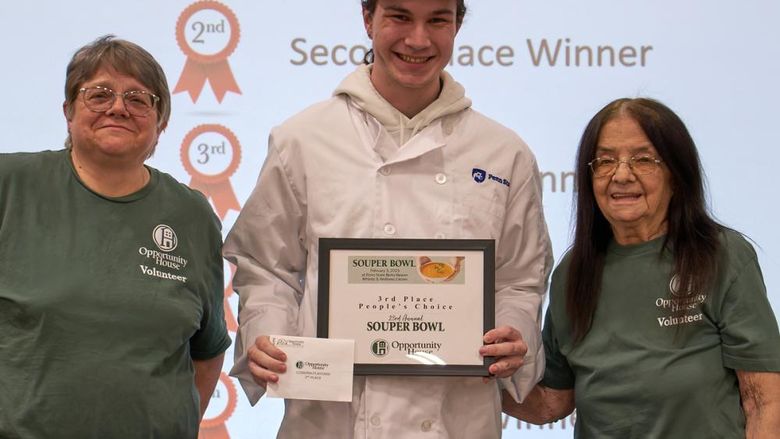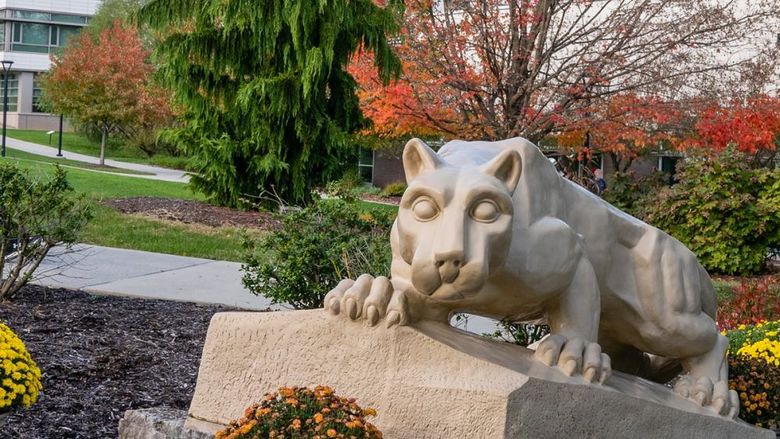
Students created bee 'hotels' made from bamboo plants on campus.
WYOMISSING, Pa. — Over the last year, Penn State Berks students partnered with local organizations to address a variety of issues centered around sustainability. Under the instruction of Mahsa Kazempour, associate professor of science education, who teaches the Environmental Science course, students worked in small groups for the Environmental Awareness and Community Action Project (EACAP), a community-based, service-learning initiative that has been incorporated into the course by Kazempour since 2011.
During the fall 2021 and spring 2022 semesters, a total of 36 teams — more than 130 students — joined forces with a multitude of community partners.
One group of students worked with the City of Reading Public Works to create public service announcements on a variety of issues, including illegal dumping, proper waste disposal and overall sustainability initiatives. Spreading awareness did not end with public service announcements — another team partnered with the City of Reading to research the procurement of sturdy, long-lasting greenhouse panels as part of an effort to restore the city’s greenhouse.
Other groups visited Glenside Elementary School for a variety of initiatives. One group taught students about sustainability, including plastic pollution, the value of butterflies, and the life cycle of plants. Another team took a hands-on approach, clearing weeds from the elementary school garden and constructing flower beds around the building.
Teams working with the Citizens' Climate Lobby, Reading-Berks Chapter were tasked with gathering information on a variety of tree species in the West Reading area, and then reporting back on their value and role in the ecosystem. Students who worked with Schuylkill River Trail National Heritage Area focused their efforts on the role that parks and municipalities along the trail play in maintaining active and engaged communities. They were tasked with creating a database of information pertaining to different municipalities, which included images of parks, recreational areas, and trails.
Other teams partnered with areas such as Blue Marsh Lake and Rock Hollow Woods. They worked on researching and designing an interpretive panel of the Blue Marsh Dam, cataloging invasive species, trail maintenance, creating habitats for aquatic life and planting native pollinator gardens.
One group partnered with Scot Case, vice president of corporate social responsibility and sustainability for the National Retail Federation, to conduct research and create environmental, social and governance impact reports to increase understanding of sustainability efforts in areas like major businesses and sporting events. Their findings were presented to the organization’s members.
Finally, some groups chose to keep their service a little closer to home, from creating art entirely from recycled materials to be exhibited as part of the Building Bridges art showcase under the guidance of Donna Chambers, coordinator of the college’s Center for Academic Community Engagement; to creating bee hotels made from bamboo plants working with John Rost, lab supervisor for biology and horticulture, at the campus greenhouse; to manning various stations during the college’s Earth Fest activities.
All the initiatives that the students completed have been publicized on the college’s EACAP webpage. There, students have the opportunity to delve deeper into what their service entailed, how it tied into their research, and their own personal reflection of the journey. At the conclusion, students presented their service and findings via a poster session at the end of the semester.
All in all, there are many ways for students to get involved in environmental and sustainability related efforts at Penn State Berks and within the Greater Reading community. The service completed over the past year was vast, giving students an opportunity to explore environmental issues in ways that appealed to them. Kazempour’s leadership, the efforts of hardworking students, and the support of community partners who are willing to take time to develop relationships with the teams, contributed to EACAP's success.
Dr. Mahsa Kazempour
Associate Professor of Science Education at Penn State Berks
